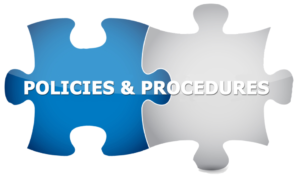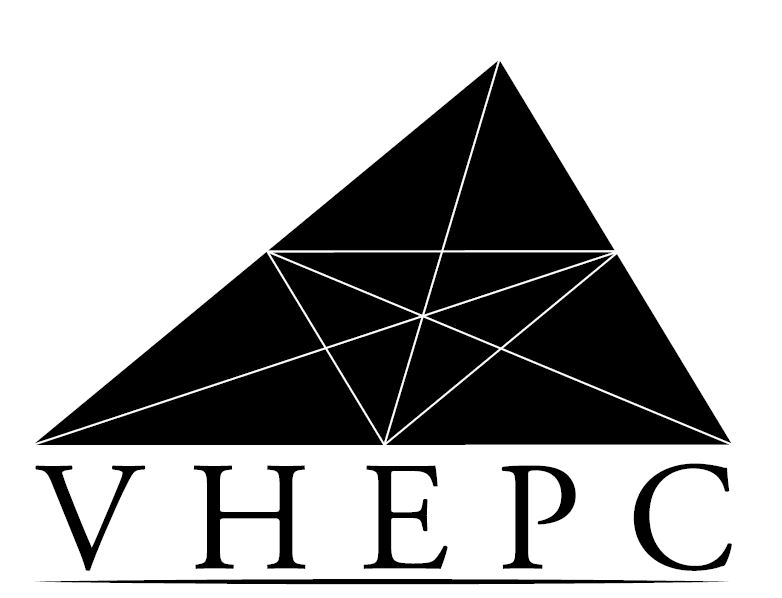The following policies and procedures apply to the use of the Small Purchase Charge Card by all agencies and institutions of the Commonwealth:
- SPCC Manual
- CAPP Manual Topic 20355
- Proper Use of Card
- Prohibited Card Use
- Card Spending Limits and Restrictions
- Late Invoice DOA Approvals
- Card Security
- Returns, Credits and Disputes
- Fraudulent and Incorrect Charges
- Reconciliation
SPCC Manual
University policy states that use of the Small Purchase Charge Card (“SPCC”) is required when procuring goods and services under $50,000 from a vendor that accepts charge cards. The purpose of the SPCC Manual is to provide guidance on the appropriate use of the SPCC.
CAPP Manual Topic 20355
The CAPP Manual (Commonwealth Accounting Policies and Procedures) documents the policies and procedures associated with the Commonwealth’s centralized accounting and financial systems. CAPP Topic 20355 details the DOA requirements for Agency Small Purchase Charge Card Programs. University policies and procedures related to the SPCC Program are developed from these requirements.
Proper Use of Card
The Cardholder is responsible for ensuring appropriate use of the SPCC:
- SPCCs must be used for official Commonwealth of Virginia purchases only.
- The SPCC must not be used to circumvent procurement guidelines.
- Efforts should be made to use vendors on contract who accept the SPCC, where appropriate, in order to maximize administrative cost savings.
- If, for any reason, the card company denies the transaction, do not allow the vendor to circumvent the denial. Contact the Program Administrator for assistance.
Use of the SPCC is disallowed for the following purchases:
- Personal items
- Flowers (except those purchased for commencement decor)
- Cash advances
- Alcohol
- Retail account memberships (Amazon Prime, BJ’s, Costco, Sam’s Club, etc.)
- Travel Insurance or upgrades to business or higher class airfare tickets
- Gifts for Employee Performance Recognition
- Purchases using the following funds (check the Chart of Accounts for Fund and Card Use Type):
- Equipment Trust Fund “ETF” (1117)
- Agency Funds (Banner funds beginning with 8xxx)
- Non-State (local) Funds
- Foundation Funds
Prohibited SPCC/Gold Card Use
- Never use your state-issued card for personal purchases.
- Never enter your full charge card number on a fax, in email or on any written document.
- Never use another Cardholder’s card or allow another person to access your card or number.
- Never split a purchase to circumvent established purchasing procedures or exceed your single transaction limit. Contact your Program Administrator if you need to make a purchase over your established transaction or cycle limit.
- Never pay a past due invoice without prior approval from DOA.
Card Spending Limits and Restrictions
Single transaction limits (STL), monthly card cycle limits (CL), and purchase restrictions are set by the Program Administrator based on your purchasing needs as indicated by your department’s historical spend. No Cardholder may use their SPCC to authorize a transaction above the maximum small purchase charge card limit of $10,000 per transaction. If a cardholder authorizes a charge in excess of the per transaction limit established for that card, whether by splitting the invoice, encouraging the vendor to circumvent the card company’s denial, or any other means, the card will be revoked for a minimum of 30 days. Repeat offenses will result in permanent revocation.
The Cardholder should fill out the SPCC Profile Change Request Form if they need to…
- make a transaction above their single transaction limit but below $10,000, OR
- need to make a purchase of one of the types of restrictions placed on their card (food or travel).
Late Invoice DOA Approvals
Invoices being processed by SPCC or Gold Card must be paid 30 days from the date UMW receives the invoice. It is important to date stamp any invoices when you receive them. If you receive an invoice which was previously received by another individual or department, including by Accounts Payable, the 30-day count down for prompt payment starts according to the date the invoice was INITIALLY received at the University, not received by you. Thus, date stamping is important to ensure we pay all invoices properly and on time.
If you received the invoice from another individual or department and the invoice was NOT date stamped or marked when it was received, it is your responsibility to reach out to the individual you received the invoice from and request proof of when it was received. This could be an email with a date stamp, a handwritten note, etc.
If it is now past the 30 day mark from when the invoice was first received by the University, you MUST obtain approval from the Department of Accounts (DOA) PRIOR to paying the invoice. To allow the Program Administrators to facilitate getting this approval from DOA, fill out the Late Payment Request Form. Evidence of when the invoice was received is required by DOA before they will consider approving the late payment request.
Once the Program Administrators receive approval from DOA, you will be sent an approval email instructing you to move forward with the payment. That email must be kept in your SPCC Payment Card File.
Card Security
Authorized use of the SPCC is limited to the person whose name appears on the face of the card. The SPCC must not be loaned to another person. If a cardholder knowingly allows another person to use the card, the named cardholder’s privileges will be revoked for a minimum of 30 days. This does not preclude a cardholder from placing an order with a vendor by telephone or electronically and then sending a representative to claim the items ordered.
The SPCC should be kept in an accessible but secure location. The account number must not be posted or left in a conspicuous place and may not be faxed, emailed or mailed to vendors. If the SPCC is lost or stolen, the cardholder must immediately notify the originating bank for the card (currently Bank of America Visa) by calling the number on the reverse of the card (888-449-2273) and also notify the agency’s Program Administrator. The Commonwealth of Virginia is liable for the use of the purchasing card by authorized users, provided that use is within the single per transaction dollar limit not exceeding $10,000. The Commonwealth does not accept liability for the following:
- Unauthorized use of the SPCC.
- Account numbers that are fraudulently used.
- Purchases made with stolen or lost cards that are beyond the maximum limit of $50 and the maximum length of liability of 24 hours after discovery and reporting of card loss or theft.
Returns, Credits, and Disputed Items
If an item needs to be returned for any reason, the cardholder should send the item back to the vendor in the manner agreed upon. Credits for returned items must be applied to the card used to make the original purchase. Store credit is not authorized.
Credits should be signed off in Works and a credit receipt should be requested from the vendor and should be kept in the purchasing file.
If the cardholder and the vendor cannot resolve an issue, the cardholder should dispute the transaction with the card company. The card company will investigate the dispute and assist with resolution.
Fraudulent and Incorrect Charges
Fraudulent Charges: If a fraudulent transaction appears on your card, contact Bank of America and your Program Administrator immediately. BOA may be able to remove fraudulent charges from your account. A new card will be issued in your name. Do not sign off on these transactions. BOA will determine if they are able to remove the transactions. If a credit is issued by the vendor, the charges will not be removed. In the case of a credit, Procurement Services may advise you to sign off on the charge and the credit to balance the account. When signing off in Works, all fraudulent charges and credits must include comments indicating their origination and resolution.
Incorrect/Disputed Charges: If you experience an incorrect or wrongful charge from a vendor that you work with/buy from, contact that business to clear up the situation. If the vendor issues a refund, the original transaction and the credit transaction will both remain on Works – you will FOAP and sign off on these transactions, but only after the credit comes through from the vendor. Make sure to note in the comments section why there is a credit and what transaction it is linked to.
Reconciliation of the Charge Card Statement
Cardholders must reconcile their purchasing file and receipts to the monthly charge card statement. The billing cycle ends on or about the 15th of each month. At the end of the cycle, cardholders should login to their accounts in Works and print a copy of the statement.
Please Note: It is the responsibility of the cardholder to ensure that all invoices, receipts and relevant forms/documentation are located within the payment card file for the corresponding billing cycle.
Dates of service and itemized descriptions are required for Prepays and items charged to an account code beginning with 72. A reminder will appear in the column labeled Pre Pay Dates/72 Itemized Desc. and this reminder should be replaced with the appropriate information for that charge.
A list of Prepay Items are found on the Accounts Payable Pre Payments Page.
 Find MORE COOP contracts!
Find MORE COOP contracts!